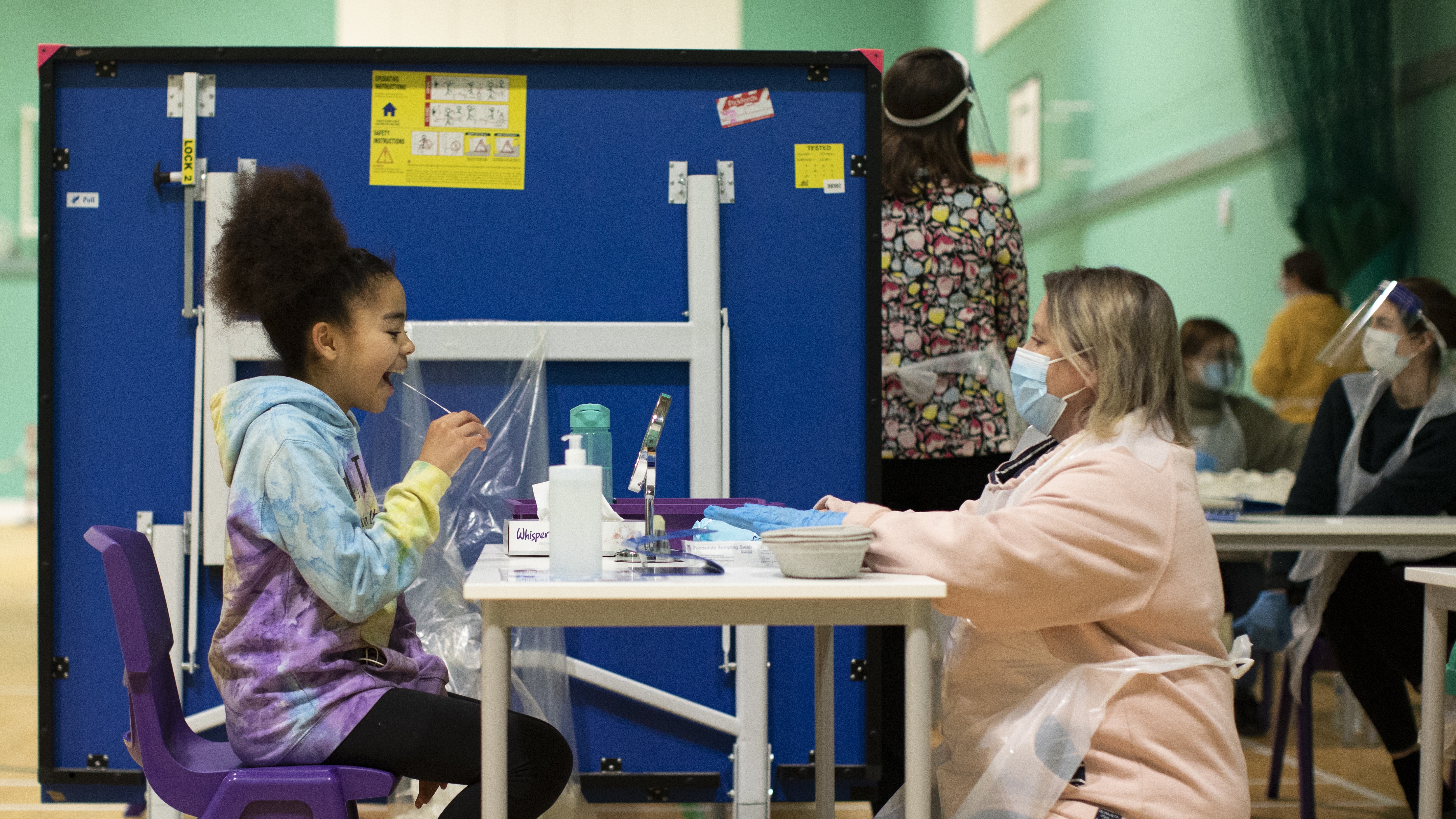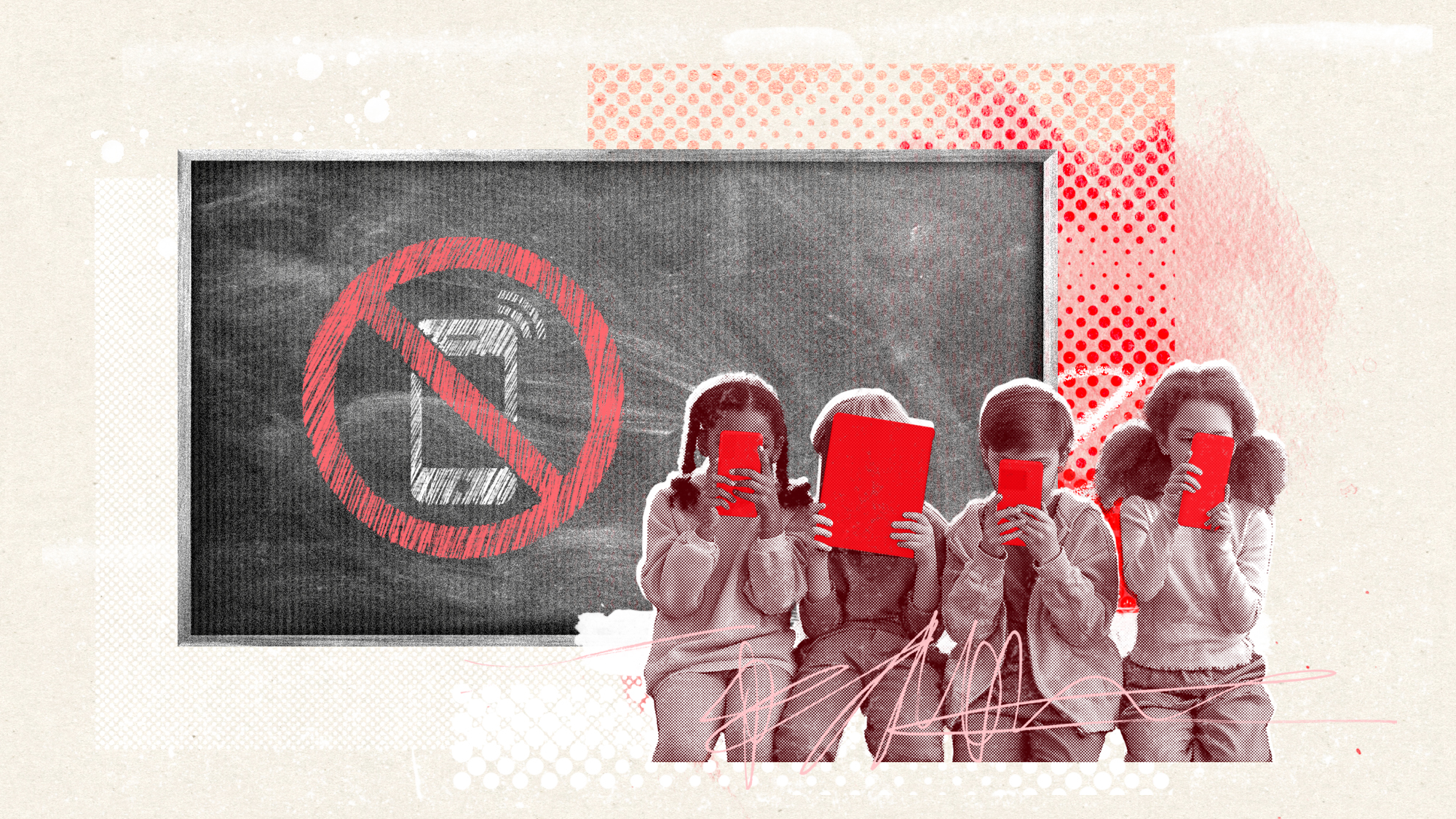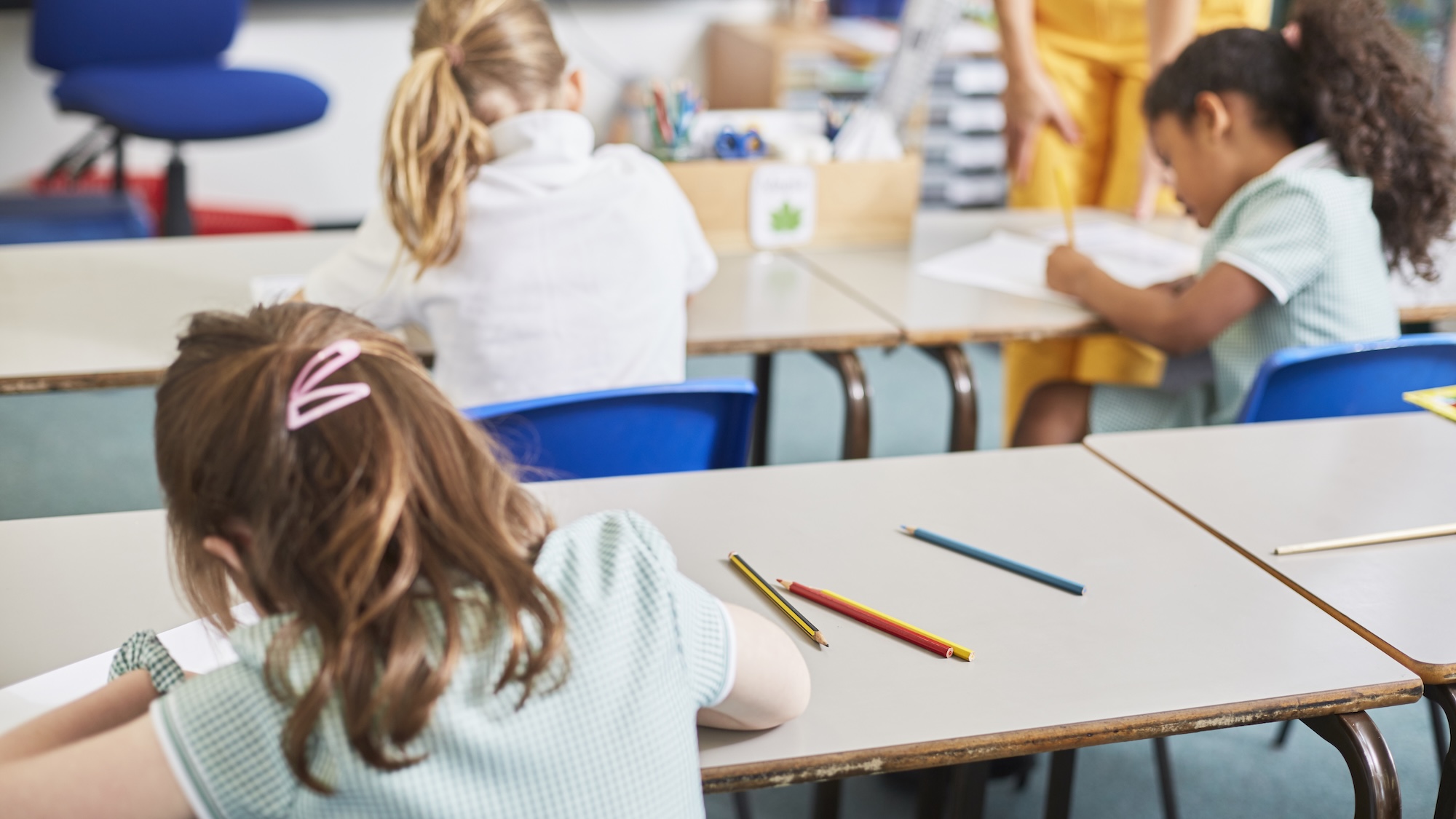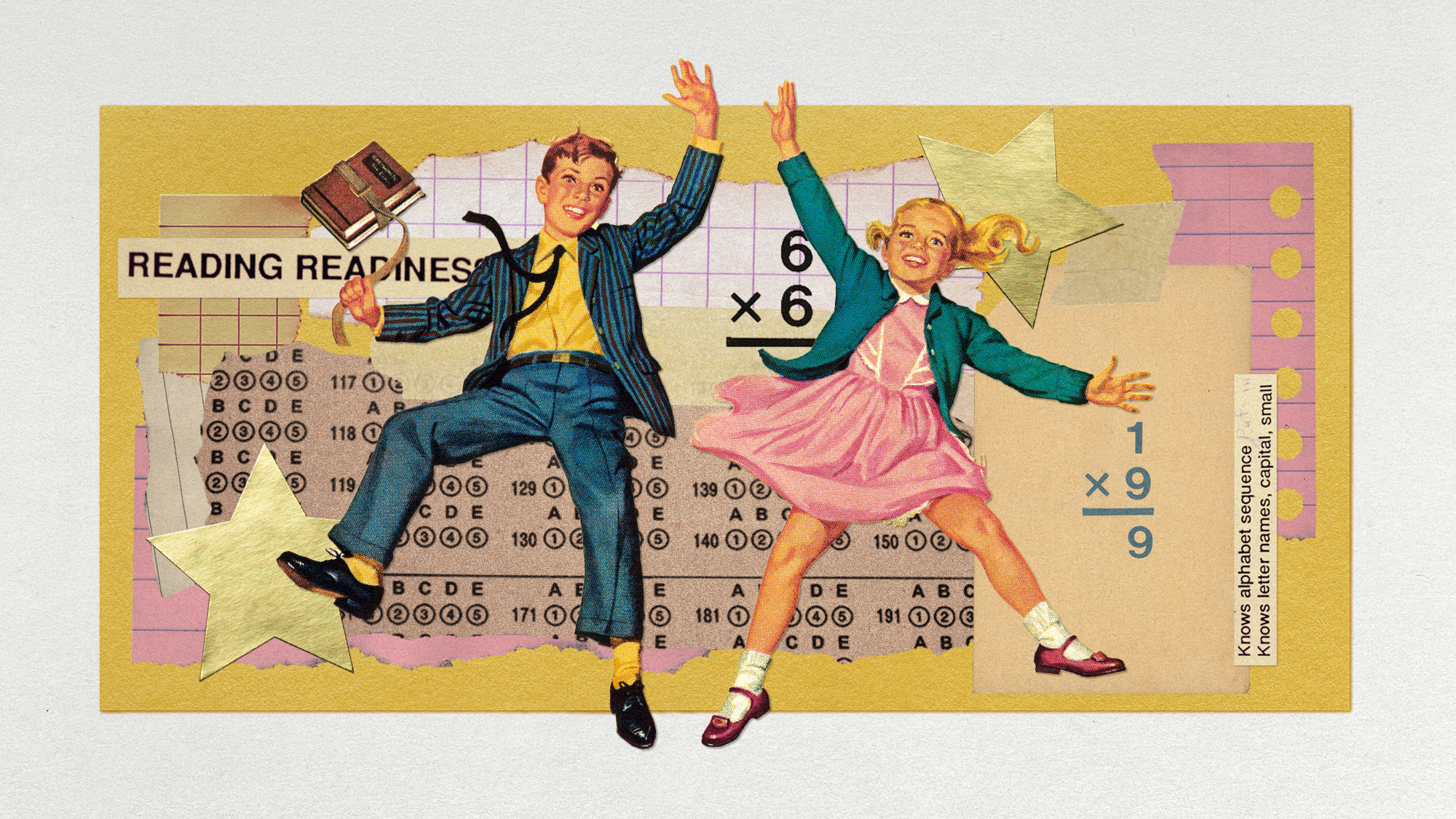Will false-positive Covid tests slash school attendance?
Experts fear that thousands of uninfected pupils may be sent home as a result of inaccurate lateral flow testing

A free daily email with the biggest news stories of the day – and the best features from TheWeek.com
You are now subscribed
Your newsletter sign-up was successful
School children across England are being tested for Covid after returning to England’s schools this week. But while the government is hailing the new mass testing regime as a key part of Boris Johnson’s roadmap for easing lockdown, scientists have spotted a flaw in the plan.
All secondary school children are being offered three lateral flow tests on their return, before being asked to carry them out twice a week at home.
However, while the tests provide a result “on the spot”, these results are “less accurate” than those from the PCR tests that are used at official testing centres and then sent off to labs, says BBC health correspondent Nick Triggle.
The Week
Escape your echo chamber. Get the facts behind the news, plus analysis from multiple perspectives.

Sign up for The Week's Free Newsletters
From our morning news briefing to a weekly Good News Newsletter, get the best of The Week delivered directly to your inbox.
From our morning news briefing to a weekly Good News Newsletter, get the best of The Week delivered directly to your inbox.
And “assuming most pupils take up the option” of the lateral flow tests, “that could result in thousands of pupils and their close contacts being asked to isolate unnecessarily”, Triggle continues.
Research shows that false-positive tests are more common than false-negatives and occur “one to three times for every 1,000 tests carried out”. So in a worst-case scenario, for every million students tested, 3,000 would be sent home despite not having Covid.
Concerns about inaccurate results have been heightened by confusion over whether children found to have received a false positive will be allowed to go back to school.
The Telegraph reports that the mass testing policy risks “descending into chaos” after Children’s Minister Vicky Ford suggested yesterday that students who test positive from a lateral flow test would have to self-isolate even if they got a subsequent negative result from a PCR test.
A free daily email with the biggest news stories of the day – and the best features from TheWeek.com
Johnson’s spokesperson later said that pupils who get positive lateral flow tests at home but tested negative in a follow-up PCR test could return to class.
However, government officials then clarified that pupils “who get a positive lateral flow test at school will be banned from lessons for ten days even if they get a subsequent negative PCR test”, the paper says.
Experts have criticised the rules as illogical, and point out that as coronavirus cases in the community fall, the number of true positives will go down but the number of false positives from lateral flow tests will remain constant - skewing data on infection rates.
Professor Jon Deeks, an expert in biostatistics at Birmingham University, told that BBC that “any testing system is a trade-off between benefits and harms”.
But “my concern is that it will actually cause more harm than good”, Deeks said.
Joe Evans is the world news editor at TheWeek.co.uk. He joined the team in 2019 and held roles including deputy news editor and acting news editor before moving into his current position in early 2021. He is a regular panellist on The Week Unwrapped podcast, discussing politics and foreign affairs.
Before joining The Week, he worked as a freelance journalist covering the UK and Ireland for German newspapers and magazines. A series of features on Brexit and the Irish border got him nominated for the Hostwriter Prize in 2019. Prior to settling down in London, he lived and worked in Cambodia, where he ran communications for a non-governmental organisation and worked as a journalist covering Southeast Asia. He has a master’s degree in journalism from City, University of London, and before that studied English Literature at the University of Manchester.
-
 Bad Bunny’s Super Bowl: A win for unity
Bad Bunny’s Super Bowl: A win for unityFeature The global superstar's halftime show was a celebration for everyone to enjoy
-
 Book reviews: ‘Bonfire of the Murdochs’ and ‘The Typewriter and the Guillotine’
Book reviews: ‘Bonfire of the Murdochs’ and ‘The Typewriter and the Guillotine’Feature New insights into the Murdoch family’s turmoil and a renowned journalist’s time in pre-World War II Paris
-
 Witkoff and Kushner tackle Ukraine, Iran in Geneva
Witkoff and Kushner tackle Ukraine, Iran in GenevaSpeed Read Steve Witkoff and Jared Kushner held negotiations aimed at securing a nuclear deal with Iran and an end to Russia’s war in Ukraine
-
 The pros and cons of banning cellphones in classrooms
The pros and cons of banning cellphones in classroomsPros and cons The devices could be major distractions
-
 School phone bans: Why they're spreading
School phone bans: Why they're spreadingFeature 17 states are imposing all-day phone bans in schools
-
 Schools: The return of a dreaded fitness test
Schools: The return of a dreaded fitness testFeature Donald Trump is bringing the Presidential Fitness Test back to classrooms nationwide
-
 Send reforms: government's battle over special educational needs
Send reforms: government's battle over special educational needsThe Explainer Current system in 'crisis' but parents fear overhaul will leave many young people behind
-
 Education: Can public schools be religious?
Education: Can public schools be religious?Feature A Supreme Court seems ready to rule in favor of religious charter schools in Oklahoma, which could reshape public education
-
 America's academic brain drain has begun
America's academic brain drain has begunIN THE SPOTLIGHT As the Trump administration targets universities and teachers, educators are eying greener academic pastures elsewhere — and other nations are starting to take notice
-
 Schools' Send crisis: how can it be fixed?
Schools' Send crisis: how can it be fixed?Today's Big Question Government urged to reform support for children with special educational needs and disabilities and save councils from bankruptcy
-
 Unschooling: the radical education trend raising eyebrows
Unschooling: the radical education trend raising eyebrowsUnder the radar Some parents are letting their children lead their education